Technology in 2016: some highly accurate predictions
2016 will be a big year for technology
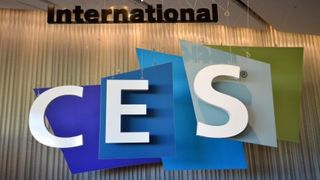
January
Another year dawns and the fast paced world of technology continues to wait for no man. What will transpire in 2016's 366 days? Who will change the world? What will flop? Who will fold? Whose data breaches will be the worst? Let's take a look into the crystal ball app I just installed and see.
In January, the world's technology industry descends on Nevada for another CES. The big trends are car tech and virtual reality. Robotic dogs make an unexpected comeback for some reason, and will.i.am announces the first 4G-enabled cake slice with a retail price of $899.99. It is only compatible with the iPhone. TVs are bigger, thinner and more curved than ever before. Literally hundreds of new smartwatches are launched, including one with a built in defibrillator that has to be prescribed by a doctor.
Rihanna plays the Samsung party at CES and announces that every Samsung user can listen to an exclusive garbled snippet of her new album for three hours on January 16. TIDAL one-ups Rihanna by releasing the Frank Ocean album exclusively in high resolution audio. People who don't subscribe to TIDAL or use a Samsung phone are generally quite annoyed. Daniel Ek, in particular.
Apple riles everyone at CES off by announcing an iPad event right in the middle of press day. The event is scheduled for February 3 and comes with the infuriating, grammatically questionable tagline: "Size isn't everything. Or is it?"
Later in the month, a rumour breaks that Apple is about to launch a TV-sized iPad, also known as the Apple Television.
UEFA decides that it will use goal line tech during Euro 2016.

February
February 3 rolls around and Apple's favoured members of the tech media arrive in San Francisco to start Instagramming their press passes. The keynote begins and after an hour of braying sales updates and news of some new Apple Stores no one cares about, Tim Cook announces the iPad Vapour, an even slimmer, even bigger iPad Air. Everyone agrees it is probably amazing except the people who think it looks like crap. Eddy Cue looks like he just rolled in after a night on the tiles, Craig Federighi's eyebrows are still amazing.
On the February 22, MWC 2016 kicks off in Barcelona, although everything of note is announced the day before. Samsung announces the Galaxy S7, which seems fine. It comes with an 8K screen, iris-scanning tech and literally 15 seconds of Rihanna's new album. LG partners with Adele to launch a bunch of Hello-themed flip phones which everyone agrees seems to be a bit of an outdated reference now.
Oculus Rift goes on sale and receives a rapturous reception from gamers. Even people's mums are interested in having a go.
February 29 causes no problems.
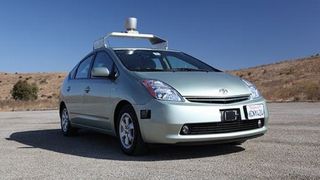
March
After a long winter of quiet, closed-door meetings, Theresa May and her Tory pals sneak the Snooper's Charter through in the UK by getting the Queen, who has only used the internet twice, to sign off on it while no one is looking. After swathes of people are arrested for what turn out to be mainly spelling errors while Googling, 84% of the population stop using the internet for anything other than the big shop. Libraries boom. Bookshops start popping up on every street corner. Internet cafes that promise anonymous web surfing become the number one place to meet hot singles in your area. It's like 1982 all over again – except, weirdly, in East London where everything remains exactly the same.
Meanwhile, Google announces that its first commercial driverless car will be available from September. The cars can only be used on certain roads in Northern California and only, if you go by pre-order demographics, by rich middle-aged white men.
The iPad Vapour goes on sale in the middle of the month. A design flaw means that it snaps completely in two if a certain part of its back panel gets knocked in a certain way. The product is recalled. It never rematerialises.
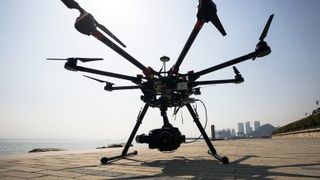
April
Facebook's dislike button finally launches, although setting it live on April 1 probably wasn't the company's best move. Rather than "Dislike," Facebook has gone with "Sorry" after a last-minute Justin Bieber tie-in is agreed. It is used sarcastically for almost the entire month.
News breaks that the US government has signed off on the world's first sentient drone, capable of making its own decisions without any human input whatsoever. It seems pretty bad but the overwhelming number of uninformed thinkpieces on the matter are somehow worse.
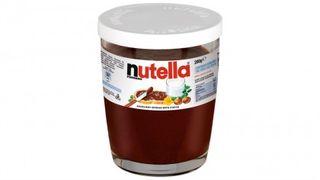
May
At Google IO 2016, Android Nutella is announced as the name chosen in an online poll of Android users. Everyone agrees it is even more spurious than the KitKat tie in of yore. Apple takes this opportunity to announce its WWDC 2016 dates, and we can't think why. Anyway, back at Alphabet HQ, Nutella will come with multi-window multitasking and some other things that hardcore Android users get excited about but everyone else finds quite boring. The big winner at IO is Google's first Project Jacquard garments which, against all expectation, seem quite beautiful and useful.
The year's first major hack takes place: thousands of people's Google search histories are published, allowing anyone to search for any other person and see what they've been up to. The people of the UK, of course, already know how this feels and enjoy taking part in a bit of schadenfreude over the matter. On the whole, everyone agrees that privacy is a concept that no longer applies.
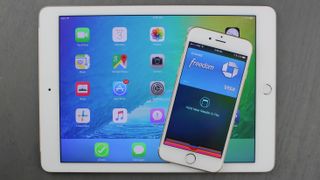
June
WWDC kicks off with news of iOS 10 and the questionably-named OS X Alcatraz. iOS 10 gives Siri free rein over your voicemails, telling people exactly why you can't come to the phone rather than just letting them stew in mystery over what you could possibly be doing that's more important than speaking to them. A bunch of new features make use of 3D Touch and a slight update to the design has everyone wondering what the iPhone 7 will look like.
Alcatraz, meanwhile, makes Apple's computer OS even more like its mobile OS. It has some cool features but everyone is too floored by the name to talk about them. Tim Cook continues to tell everyone that Apple will never merge OS X and iOS.
London Tech Week happens. No one really notices.
Euro 2016 "kicks off" on June 10. Two days into the tournament, Iceland accuses UEFA of underhanded tactics after one of its goal line challenges went unreported. UEFA blamed the miscommunication on a dodgy connection between headsets.

July
It's a quiet month. There is a superhero film tie-in of some kind, resulting in a limited edition Sony phone that nobody buys.
Germany wins Euro 2016; Iceland do not make it through the group stages.
A terrible tragedy occurs. Starved of #content, some tech sites rush to find a vaguely tech-related angle for clicks.
Investors are issued with a warning about Blackberry's finances.

August
The Olympics begin and the BBC broadcasts some of its coverage in Higher Frame Rate than usual; about 10 people benefit from this.
Things begin to pick up in August as iPhone rumours and speculation about what IFA 2016 hold circulate. The iPhone 7 is said to be all manner of shapes including: teardrop, hexagonal, a rhombus and circular, and that rumour about an iRing surfaces again. Someone with knowledge of the supply chain reckons it will be thin, fast, better screened etc etc.
IFA rumours are equally as exciting. Some companies are rumoured to have new, slightly better phones, while others are rumoured to have new, slightly better washing machines.
Another major data breach takes place, this time at LinkedIn where thousands of employees are outed as they search for new jobs.
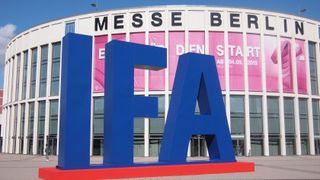
September
IFA 2016 kicks off on September 2nd with its official tagline: "Official partner of the future." There's a bunch of new Samsung phones on the racks, as well as a fridge that has everyone excited because it comes with a button to push for champagne and the ability to restock itself. Sony's new flagship phone is underwhelming and Motorola's new smartwatch lineup is quite similar to its 2015 stuff. Asus's press event, presided over by the inimitable Jonney Shih, is spectacular. Its new laptops look nice but they're still no Macbooks are they, let's face it.
Apple announces the date for its next iPhone event, which will take place on October 11. The tagline on the event is, "You ain't seen nothing yet."
The first major driverless car accident takes place in late September. Three people are killed when the car indicates right but turns left due to a bug in the software. The 12 remaining driverless cars are remotely powered down until the bug can be fixed.
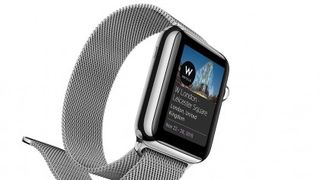
October
Apple launches a new Apple Watch and the iPhone 7 at an event on October 11. The Apple Watch has a minor update and a few new straps to choose from, while the iPhone 7 is completely redesigned. It's got wireless charging as standard (if you buy the wireless charging port, on sale at £149.99) and the slimmest, flagship model comes without a 3.5mm headphone port.
BlackBerry's Q2 results are as abysmal as anticipated. Its new handset, the Blackberry Syar, has failed to capture any interest whatsoever, even among the newly security conscious public. The company sells of its last remaining patents and shuts its doors for good. RIP.
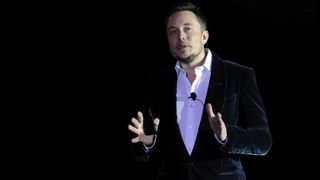
November
The iPhone 7 goes on sale on Friday November 4 and sells in record numbers according to Apple. The second iteration of the Apple Watch sells only 400 units worldwide in its first weekend. Apple does not mention this in its press release.
The American presidential election is overshadowed by the sentient drones, which begin the overthrow of the American government aided by Russia. Elon Musk and Stephen Hawking sit back and say: "We told you so."
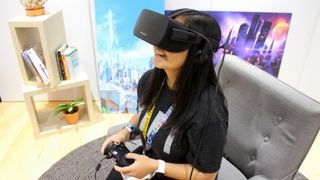
December
All private enterprise is nationalised in the US under its new president, Vladimir Putin. Google gradually becomes a toxic wasteland of government controlled spyware and falls out of use in all but government-run organisations. DuckDuckGo's founders move their entire operation to Sweden and the search engine becomes the number one in the world.
Oculus Rift is the year's must-buy Christmas present, taking on Wii-like status in living rooms all over the world. Except the US where it is now illegal.
Former UK News Editor for TechRadar, it was a perpetual challenge among the TechRadar staff to send Kate (Twitter, Google+) a link to something interesting on the internet that she hasn't already seen. As TechRadar's News Editor (UK), she was constantly on the hunt for top news and intriguing stories to feed your gadget lust. Kate now enjoys life as a renowned music critic – her words can be found in the i Paper, Guardian, GQ, Metro, Evening Standard and Time Out, and she's also the author of 'Amy Winehouse', a biography of the soul star.
